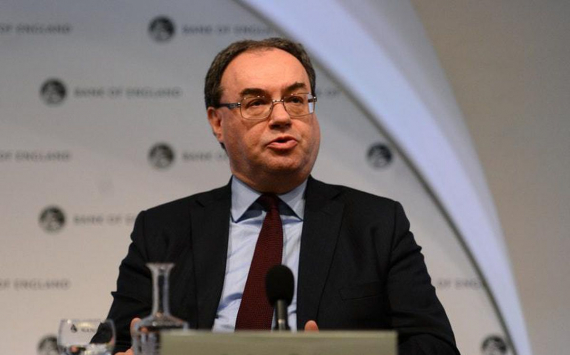
The governor of the Bank of England has warned of "apocalyptic" food prices, saying he feels "helpless" amid soaring inflation.
Andrew Bailey hit back at criticism that the Bank acted too slowly to tackle inflation, blaming a "bad situation" on a series of external shocks including the war in Ukraine and the lockdown in China.
"We can't predict things like wars - that's not in anybody's power," he said.
He said he does not think the Bank could have done anything differently to prevent soaring prices.
He said the conflict in Ukraine has pushed up energy prices, which are the biggest driver of inflation - while the lockdown in Shanghai has exacerbated increases in the cost of goods due to its effect on supply chains.
Mr Bailey said the Bank also underestimated the number of people who would leave the labour market after the threat of the pandemic receded, which is leading to labour shortages that affect inflation.
The consumer price index (CPI) measure of inflation hit 7% in March and is expected to pass 10% later this year.
Michael Saunders, from the Bank of England's Monetary Policy Committee, added that "there is no sensible monetary policy that could have held inflation at 2% this year".
Food prices a 'major worry'
Mr Bailey said growing food prices were a big concern for the central bank as Ukraine struggles to get wheat and cooking oil supplies out of the country.
"[The inflation risk factor] that I am going to sound rather apocalyptic about is food," he said.
He said he spoke to Ukraine's finance minister in Washington earlier this month, who believes farmers will be able to plant crops this spring but have "no way" of shipping them out.
"Ukraine does have food in store, but it can't get it out at the moment," he said.
"As things stand at the moment it's getting worse," he continued. "And that is a major, major worry.
"And it's not just, I have to tell you, a major worry for this country - it is a major worry for the developing world as well."
Ukraine and Russia are big players in world food production, representing 53% of global trade in sunflower oil and seeds, and 27% in wheat, according to the United Nations.
Mr Bailey also warned that unemployment is set to increase as inflation bites.
He said prices would eventually be brought down by a "shock" to real incomes which "will have an effect on domestic demand, and it will dampen activity".
"I'm afraid it looks like it will increase unemployment," he added.
He said the Bank of England is facing its biggest challenge to its monetary policy framework in 25 years.
On the impact of Brexit, he said there has been no evidence to change the Bank's view that Brexit will be bad for the UK's trade.
"We have built into our view of the future that there is a negative impact," he said.




